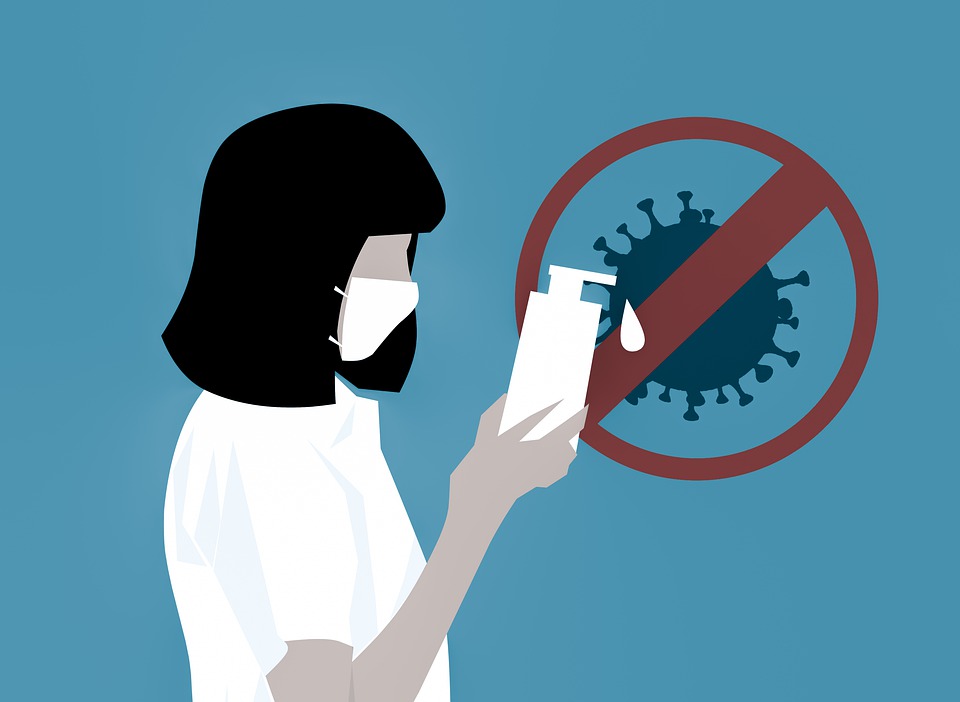The world has been hit by dangerous diseases i.e., Coronavirus or COVID-19 is caused by the cruel virus that is popularly known as novel coronavirus or SARS-CoV-2.
Since the outbreak of the COVID – 19, you might have heard or watched on news channels about several trucks and mobs of sanitation workers busy in their jobs.
Despite caring about their lives, they put on the backpack tanks and then start their real actions – fogging the roads, sidewalks, plazas and even the parks. And I’m sure you’ve heard this news about China, South-Korea or Italy; right?
Besides, countless recommendations are telling us to wash our hands regularly. Also, the experts recommend disinfecting those surfaces of our home that are touch more often. And all these are only to prevent ourselves from catching that very deadly virus.
Do you think these are effective in preventing the spread of COVID – 19?
No; right?
So, what could be the most-effective way to prevent yourself from the virus?
Before I discuss that, let me state something more about coronavirus. There are many different species of coronavirus; and SARS-CoV-2 is one of them that is the only virus to cause the deadly disease; COVID-19. And droplet-infection is the most common method of transference of this disease. No matter either the droplet inhales by nearby people or lands on the surfaces that others touch; once the droplet comes out from the mouth of the infected person, it’s surely going to infect someone healthy nearby.
Alas! The number of deaths is gonna increase once again!
Would want that to keep happening?
Not ever.
Well, this is why the health experts and a few past studies suggest that some of the common disinfectants used for household purposes that include soap or a diluted bleach solution; are to deactivate coronaviruses on indoor surfaces.
Let me state that coronaviruses are envelopes with a protective fat layer. This is something that makes them “fairly wimpy” in comparison to a few common viruses including the Norovirus. Also, their robust protein shell plays an important role in this context.
Disinfection Liquid

Now, let me talk about the disinfection liquid – the effects that it causes upon the coronavirus.
Moreover, the coronaviruses do have a very high resistivity; i.e., they can live on their own without the need to depend upon any vector. For your information, let me tell you that they can live in the air for up to 3 hrs. and for 2 to 3 days on stainless steel and plastic surfaces.
Further, many kinds of research and reports show that the SARS-CoV-2 can remain alive for up to 9 days on non-porous surfaces like stainless or plastic. Also, the feces of the infected person carry those viruses that spread in the air when the person excretes. Moreover, the viruses also get transfer to healthy people when an infected person touches anywhere without washing his hands properly after using toilets.
Anyways, there’s no proof still that shows the spread of COVID-19 through drinking water, hot tubs or even the pools.
Despite this, people especially in the countries and cities with a higher number of infected people, like Shanghai & Ghongzhou in China and South-Korea, sodium hypochlorite or household bleach were the most commonly-used disinfectant to prevent the spread of coronaviruses.
Still, it’s unclear if bleach destroys the coronaviruses on the outside surfaces or it kills them completely when in the air.
When passed through the Ultraviolet rays (UV), bleach breaks-down itself. Also, the UV rays can destroy the coronaviruses easily. Moreover, on using bleach as a preventive measure against the coronaviruses, the chances of healthy people getting infection decreases to a greater extent.
After all, I’m damn nowhere anyone goes on licking the surfaces; do they?
Not ever.

Safety Tips Use of Disinfection Liquid
Let me tell you how to use disinfection-liquid while cleaning the surface area.
- Buy disinfectants and alcohol in the required amount, avoid excessive storage, and keep them out of the reach of children.
- When preparing a disinfectant solution, follow the safety tips and do not do it in front of children. So do not use methanol on hot surfaces, near gas flames, and light cigarettes. and turn it off if it catches fire by using extinguishers other than water.
- Avoid contact with disinfectants antiseptics agents and methanol with the eyes.
- Cleaning your equipment that is impregnated with alcohol or after use put in the trash.
- When using disinfectants and antiseptics agents use an appropriate filter or cartridge respirators with enclosed glasses, and other personal protective equipment safely. Also, for using them refer to material safety data sheets.
It’s extremely irritating for the mucous-membranes and can lead to many infectious and respiratory diseases.
Especially, the workers spraying such chemicals are at a high risk of getting respiratory troubles and other similar problems. The major problem that one may get while spraying the chemical is Chronic Obstructive Pulmonary Disease (COPD). This is why the professional involves in such a task should apply all the preventive measures as far as possible to stay safe from the deadly disease.
Now, I hope you gain some insight on how to use disinfection liquid correctly to be protected from the COVID-19. Still, if you find something missing or something that is worth-to-be includes in this blog related to Coronavirus infection, keep visiting this site regularly.
Robots dynamic offers AI disinfection robots to many industries including hospital, supermarket, hotel sectors to minimize the risks for their staff during this pandemic. It is equipped with disinfection liquid which can hold up to the capacity of 70kg. Disinfection Robots are capable of frequently sanitizing touched surfaces and shared spaces both efficiently and thoroughly.
